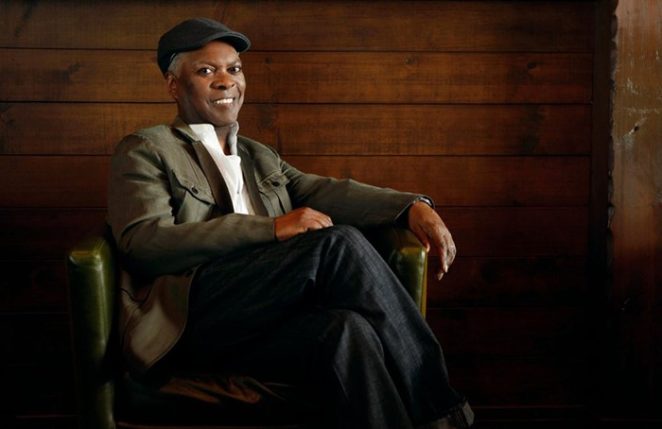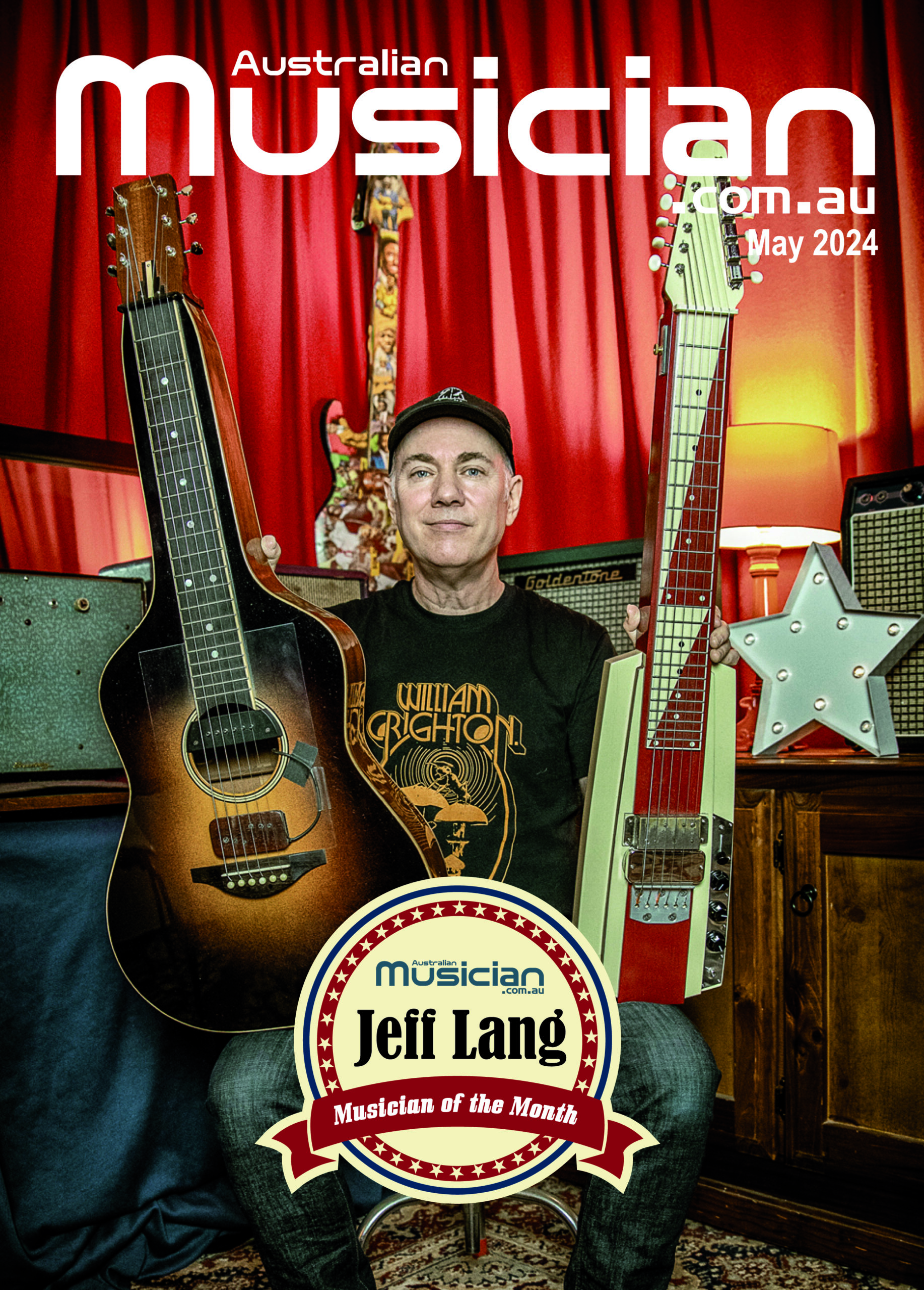
If rock and soul music was a crime scene, Booker T Jones’ DNA would be all over it. As a member of the Stax Records’ house band in the early 60s, he played on classic tracks by Otis Redding, Sam & Dave, Wilson Pickett and Albert King to name a few. With his own band The MGs, he wrote and recorded timeless songs such as Green Onions and Time Is Tight. He also played on and produced Bill Withers’ hit Ain’t No Sunshine and played bass on Dylan’s Knockin’ On Heavens Door. He’s recorded with Willie Nelson, Neil Young, Carlos Santana, Stephen Stills, John Lee Hooker and Eric Clapton to name a handful more. As one of the architects of the Memphis soul sound, he was inducted into the Rock ‘n’ Roll Hall of Fame. The man is a walking, talking music history lesson and luckily for Australian music fans, Booker T Jones will be bringing his Stax Records Review to Bluesfest next year, as well as playing some capital city side shows.
AM editor Greg Phillips found the great man on the other end of the phone line and got to discuss his career and the upcoming tour.
Booker T Jones is no stranger to Bluesfest, having performed at the festival several times before and has fond memories of his time in Byron Bay, particularly his down-time spent on “beautiful sunny days on a fine white sandy beach”. His 2017 appearance will feature his acclaimed Stax Records Review show in which the band will perform hits from the famous Memphis recording studio that Booker T was either directly involved with or has been influenced by. We’re talking classic tracks by artists such as Eddie Floyd, Otis Redding, Carla Thomas and of course his legendary Booker T and The MGs material. The band will include two horns, two singers, bass, drums, Booker T on Hammond organ and piano, and his son Ted on guitar. If anyone knows the Stax catalogue it’s Booker T. He started playing with the label’s house band after school when he was in tenth grade, firstly on baritone sax then graduating to Hammond organ. His bandmates were guys like Steve Cropper, the guitarist who co-wrote Dock Of The Bay and bass great Donald Duck Dunn, who were both an integral part of The Blues Brothers movie in 1980.
History just follows these guys around. They were all in Memphis together on the historical day in 1968 when civil rights activist Dr. Martin Luther King was shot dead. The band was booked to play that night and assumed the show would be cancelled. However famous concert promoter Bill Graham called them up and told them that a line was stretching around the corner of the venue and they had better come down and play.
“Well on days like that, your memories can only be about that event,” Booker T recalls. “An event like that takes over and lasts for a number of days. The most difficult thing was that he was shot within close proximity of us. We had frequented the spot where he stood so many times. That was Steve’s spot in particular and Eddie Floyd too. They wrote next door to that room many times on many occasions. (The pair wrote Knock on Wood at the Lorraine Hotel, scene of Dr King’s murder). We had our meals there, the entire company. We had our recreation there because we didn’t have a swimming pool at the Stax studio. We went there for afternoon refreshment.”
It wasn’t just his work for Stax records which helped to define Booker T Jones as a music legend, he recorded with many artists in studios all over America. A little known fact is that he played bass on the Bob Dylan hit Knockin’ On Heaven’s Door. “It is true, that’s me playing bass,” he says. “That was a late night or early morning session out at a movie studio in Burbank and it was an acoustic session with just stringed instruments and voices. I was a guitar player too and I had always kept my guitars from when I was a kid. Up until that time I still had my acoustic, still had my bass, all my string instruments. When I jammed with Bob, it was pretty much as guitarist. He’d come to my studio and sometimes he would play guitar and I would play bass. I had a little studio out at Malibu and Bob had a ranch over at Paradise Cove across the highway.”
Of course the instrument which Booker T Jones is most famous for is the B3 organ, which he wrote the Hammond organ playbook for by creating such classics as Green Onions, Time Is Tight and the timeless music from his Melting Pot album, a record he is still proud of today. “We ended up with a good sound on that record,” Booker T says. “The bass is incredible on that album. Duck played the hell out of it. That was done in a studio outside of Stax. We recorded that one in New York and got a really good sound on it.”
As any keyboard player will tell you, the original Hammond organs are a beautifully warm sounding instruments but technically problematic and heavy as hell. “They stopped making them in 1974,” Booker T says of the original organs. “There’s no Hammond organ school like there was back in the day for people to go and learn. So the young guys have to learn however they can. The electronics are basically … well, the first one was built in 1934, so the tone wheels are just big metal wheels, not like the lightweight digital electronics now. It’s a very heavy instrument. It weighs 370 pounds plus the bench, it goes over 400 pounds. It’s very unwieldy. My back is not good! I started lifting that thing when I was way young, up the steps of the clubs in Memphis and I can tell you, it’s not good. I have three Hammonds at home. I have the new digital. I like the new one that they are making and I have my original old B3 plus I have a M3, which is a cut down version of the B3, so I am not really a collector. I just have those.”
Unlike a lot of his contemporaries, Booker T Jones has really embraced the modern day music world. He’s always open to new, innovative ideas, often on social media and enjoys digital recording methods. “There are so many possibilities and there are analogue simulations which can be purchased and injected into digital audio workstations,” he says enthusiastically. “There are still analogue consoles that you can record on. I do a lot of analogue recording still. Most of the recent recordings I have done were on tape and analogue consoles. So it’s still available … a little expense these days but now you can get the best of both worlds.”
Booker T is also open to other artists such as hip hop producers sampling his music and doesn’t see much difference between that and an artist doing a cover version of a song. “It is very similar,” he says. “Sometimes with the samples they will do a completely new twist, something I wouldn’t have thought of and that’s what is interesting to me. When they use it like Jay Z and Kanye did with Try A Little Tenderness, Otis’ version of that and the things they have done with the MGs Melting Pot, it’s pretty unique and inventive. The publishing company takes care of that and they usually say yes. There have been a lot of samples, yeah and I have really enjoyed some of them.”
Apart from coming down to Australia for the Bluesfest tour in April, Booker T has begun writing with his son Ted for a new album but the project is not yet advanced enough to be able to inform anyone of a direction or possible guest artists. “There’s a lot of experimentation but we’re just coming up with the core songs right now. I haven’t decided on collaborators at this point. My son was here last week and we are writing songs together. We’re doing a lot together now. He’s coming to Australia too. I’m not sure if the next album I do will be a soul album. I have a lot of ideas and I have started singing. I still love the Hammond organ but I am not sure what focus the album will have. My ideas can range from jazz to classical to dance.”
Bluefest in Byron Bay runs from April 13-17, 2017
Bluesfest information


